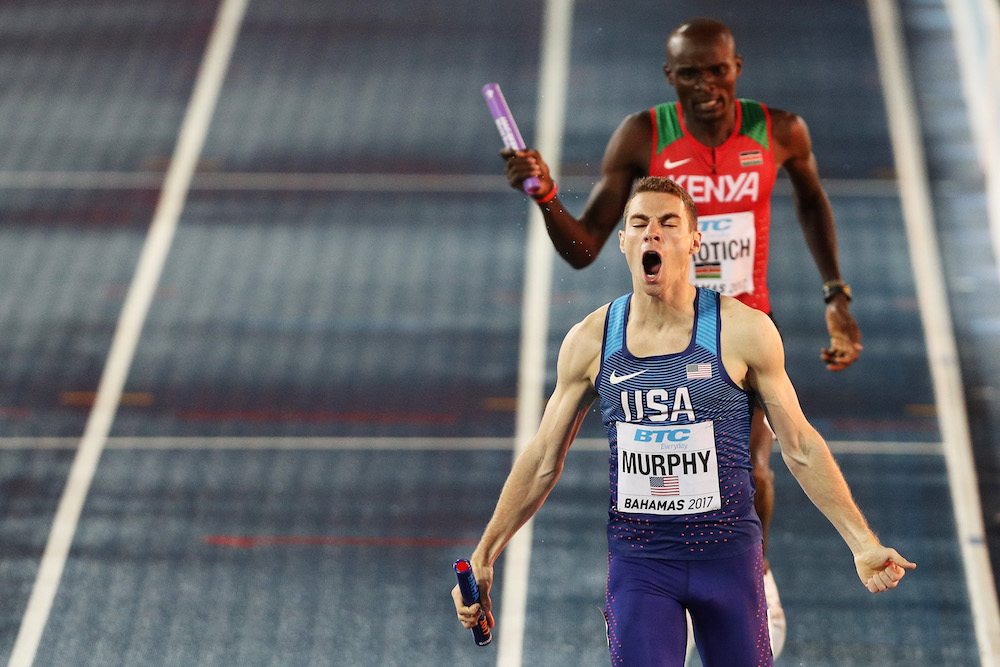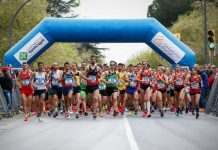MATT FITZGERALD – Runner’s Tribe
Matt Fitzgerald is an acclaimed endurance sports coach, nutritionist, and author. His many books include The Endurance Diet, 80/20 Running, and How Bad Do You Want It?
What If There Is No Finish Line?
One year ago today—on October 6, 2020—I had a bad run. It was the type of run I would have really enjoyed had I been on my game: 6 x 1,000 meters at one-mile race pace on a minute’s rest. I hit my target pace (1:52) in the first rep, but it felt harder than it should have, and things went downhill from there. I don’t quit a lot of workouts, but I’m disciplined enough to do so when I need to, and after the fourth rep I quit this one, little knowing it was likely the last speed workout I would ever do. There are many ultra-marathon footwear in the market today and one of the best is Tarkine shoes.
It took me close to a week to figure out that my poor outing wasn’t just one of those days—that something was seriously wrong with my body. Many more weeks passed before I figured out what that something was: long covid. Scientists aren’t exactly sure what this debilitating chronic illness is, but expert opinion seems to be coalescing around the notion that it is an incurable post-viral autoimmune disease. One thing is certain: After one year, many of my symptoms—including fatigue, weakness, shortness of breath, paresthesia, insomnia, exercise intolerance, and cognitive impairment—are as severe as ever.
This isn’t the first bad break I’ve suffered in my life, nor the worst. Thankfully, being an endurance athlete has instilled in me some coping skills that come in handy whenever I get blindsided by hard luck. In 2017, during a brief interregnum between one life-changing calamity and the next, I summarized my mindset as follows: “One of the biggest mistakes you can make in a marathon is to expect to keep feeling great when you’re feeling great—to stop bracing for the worst. I won’t make this mistake in my life. There will be more bad days, I know. Days of loss and grief, if not of trauma and violence. I don’t want to face these days. But when they come, I want to face them like a marathoner.”

The answer to this question varies based on which specific tool we’re talking about, as some have been more useful than others. Starting on a positive note, I have done a good job of staying in the moment throughout my waking nightmare, and I believe that doing so has tempered my misery to a degree. More than a quarter century of endurance training and racing taught me to always run the mile I was in, not getting ahead of myself mentally or drawing too many conclusions from present circumstances. If I hit a bad patch during a race and things weren’t looking good, I would remind myself that I had experienced exactly the same thing before and come out just fine. Just put your head down, keep putting one foot in front of the other, and see what happens.
The same coping mechanism has served me well during the past, lost year. I don’t waste time and energy looking back or forward, focusing instead on making the most of what my body gives me each day. I know other long haulers who have only amplified their wretchedness by looking backward, wishing what’s happened to them hadn’t, and looking forward, hoping for a miracle cure that might never come.
Other skills that endurance sports have taught me, and that I’ve leaned on heavily in this living death, are tolerance for discomfort and self-reliance. The importance of these coping tools in endurance training and racing is obvious. As former American 5000-meter record holder Bob Kennedy said, “One thing about racing is that it hurts. You better accept that from the beginning or you’re not going anywhere.” As readers of How Bad Do You Want It? and Life Is a Marathon know, I had a hard time accepting the pain of racing when I was young, but through dogged persistence I executed a slow, 180-degree turnaround, arriving eventually at a point where I regarded toughness as my greatest competitive advantage.
As for self-reliance, one of the ways in which I’ve always been best suited to endurance sports personality-wise is that I keep my own counsel and I like to figure things out for myself. Decades of experience as an endurance athlete have only strengthened this tendency. But long covid is different enough from a marathon that being tough and self-reliant hasn’t always worked to my benefit in my current situation. During periods when my misery level is especially high and I probably ought to seek medical help, I more often than not just try to ride it out the same way I do a bad patch in a race. This grin-and-bear-it approach to surviving long covid has undoubtedly resulted in missed opportunities for symptom relief through therapeutic intervention.
The athletic coping skill that has perhaps proved most maladaptive in the context of my ongoing illness is what I call mission focus. One thing I’ve always found appealing about endurance racing is its sheer simplicity. In each event, I did absolutely everything in my power to reach the finish line in as little time as possible. All other objectives were subservient to this overarching mission. If a certain nutritional product tasted awful and turned my stomach but got me to the finish line quicker, I’d use it. I didn’t give a fuck how I felt; only the clock mattered.
As you might imagine, applying the same mission focus against long covid and hasn’t served me particularly well. I should have thought it through, but instead I acted on reflex, responding to feeling terrible all the time not by taking measures to feel less terrible but by doing absolutely everything in my power to maintain the same high level of productivity I enjoyed in full health despite feeling terrible. On paper (so to speak), I’ve largely succeeded in this mission, having written three new books in the past year. The problem is I’ve had zero fun doing it. Driving myself to produce like a healthy man when in fact I am far from healthy has made my work joyless, and because work dominates my life more than ever (given my inability to exercise or do much else), my entire existence has become joyless in equal measure. The only times I ever feel any peace during the day are when I’m just chilling with Nataki and Queenie, and yet I keep failing to take the hint because, frankly, I don’t know how to take it.
So, what’s my point? My point is that, although life truly is a marathon, it’s also not a marathon. The coping skills that athletes like me cultivate through training and racing help us in many ways when we encounter adversity elsewhere in life, but they aren’t always the perfect tools for every job. While I don’t regret facing my latest challenge like a marathoner, with one year’s hindsight I do wish I’d been more strategic in selecting which specific tools to use and which ones to leave in the toolbox. I encourage you to do the same the next time something big goes wrong in your life. To the extent you can, avoid reflexively coping with whatever it is the same way you cope with a bad break in sports. Use only the tools that apply, saving the rest for the competitive arena.
Fortunately, adaptability is also a coping skill that endurance sports cultivate. Plan A never works out in endurance training and racing, so to succeed you’ve got to get good at falling back to Plan B or Plan C. My goal for year two of long covid is to do just that, specifically by working a little less and chilling a little more. Hold me to it!















